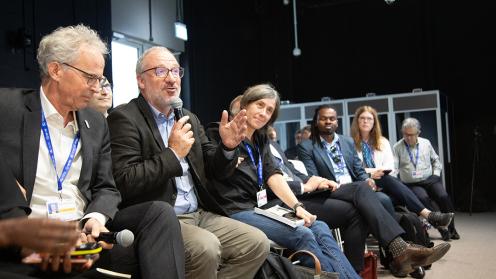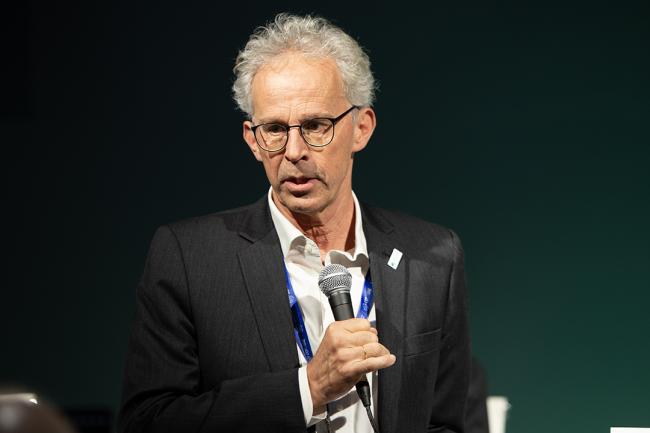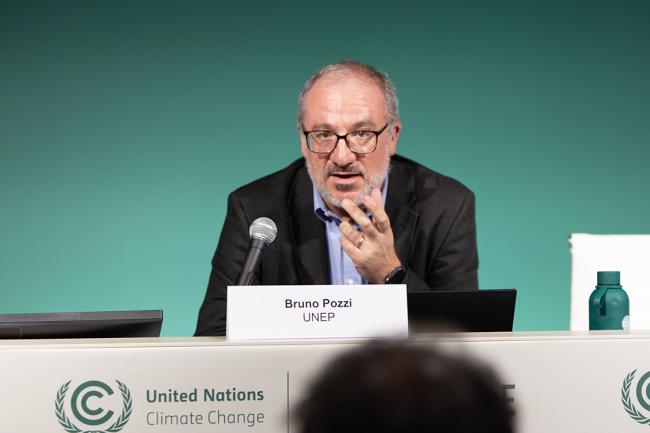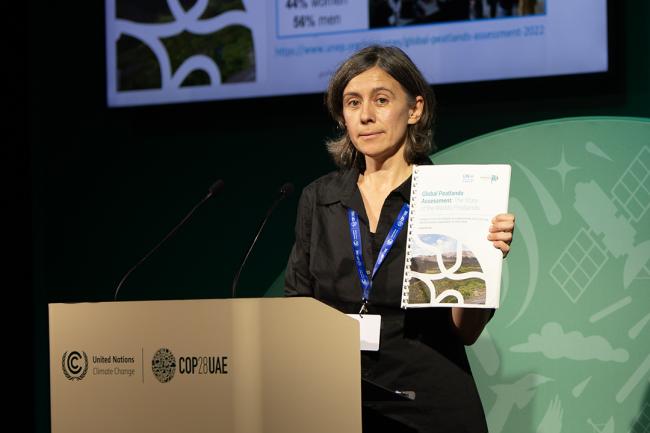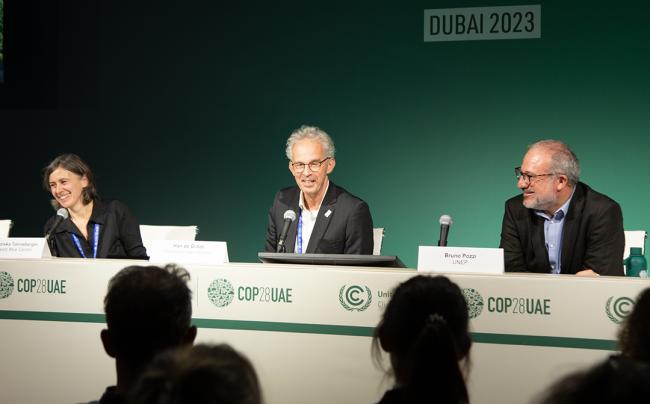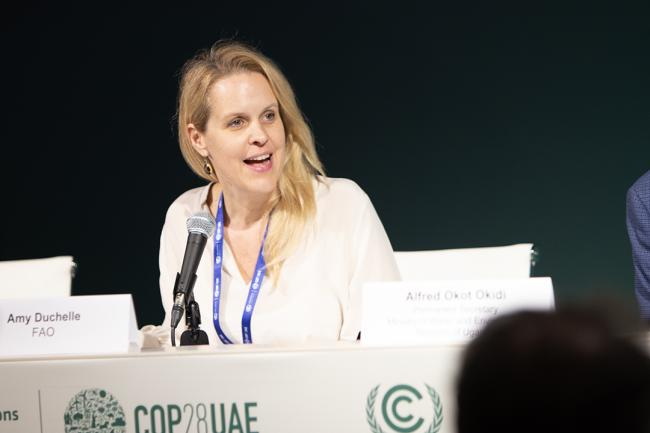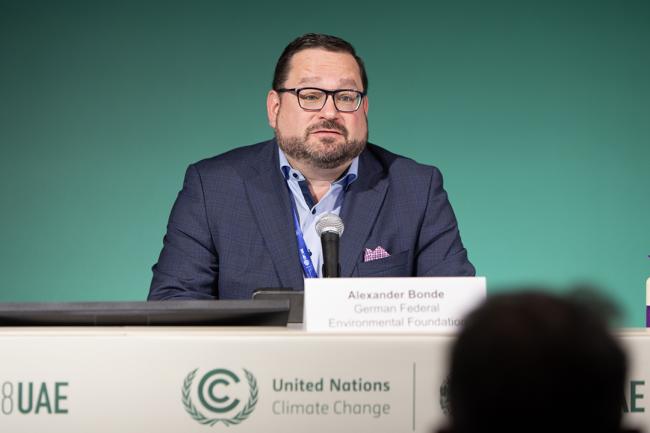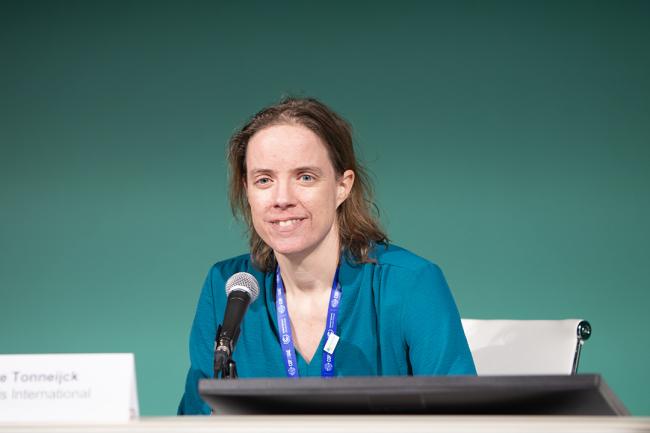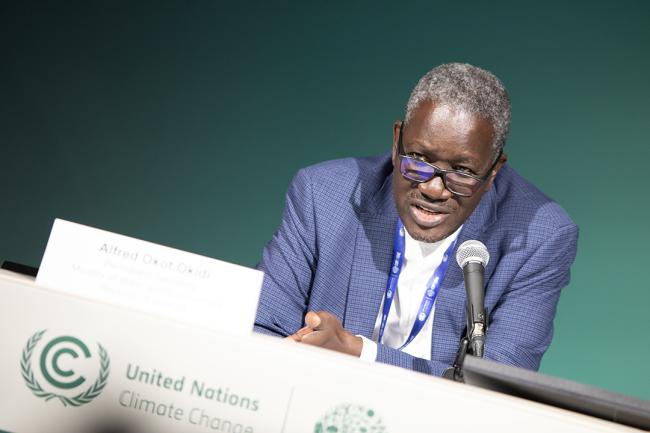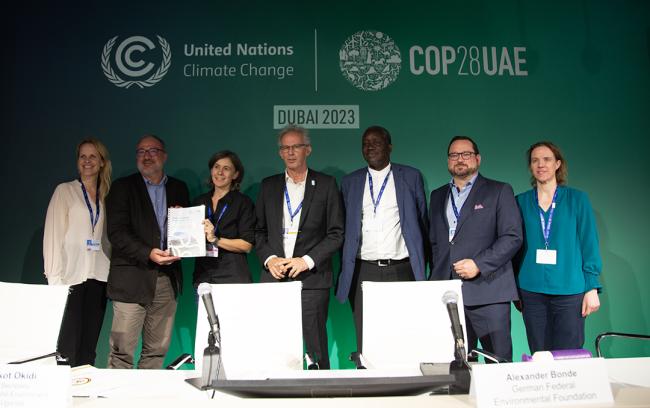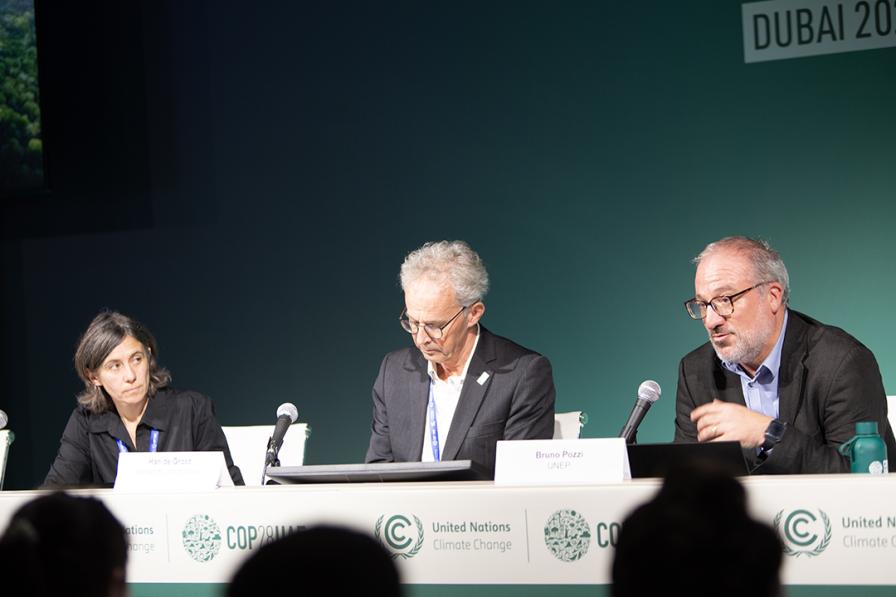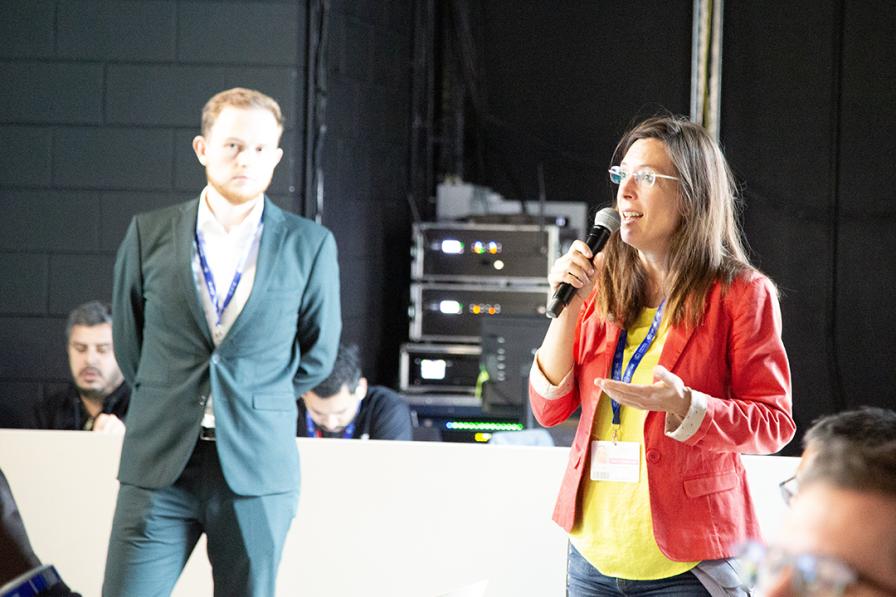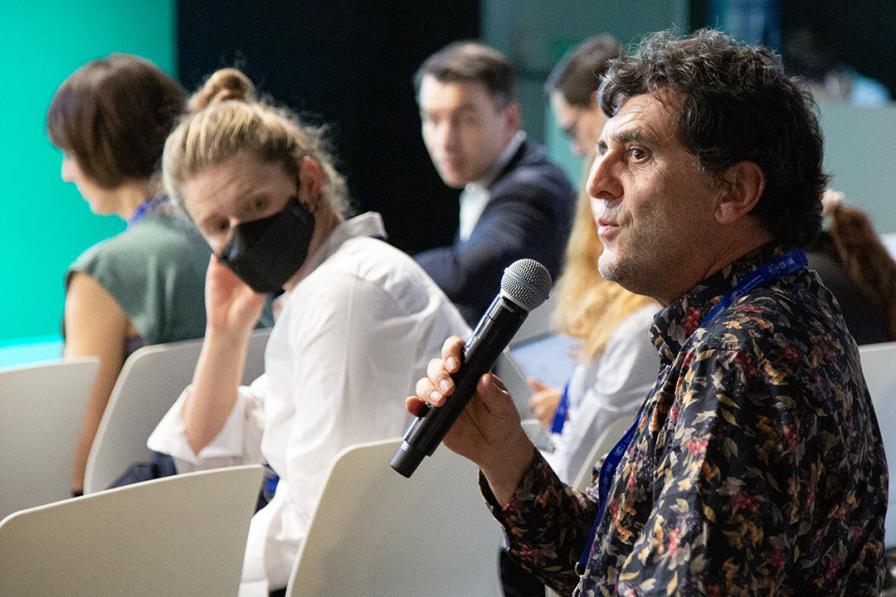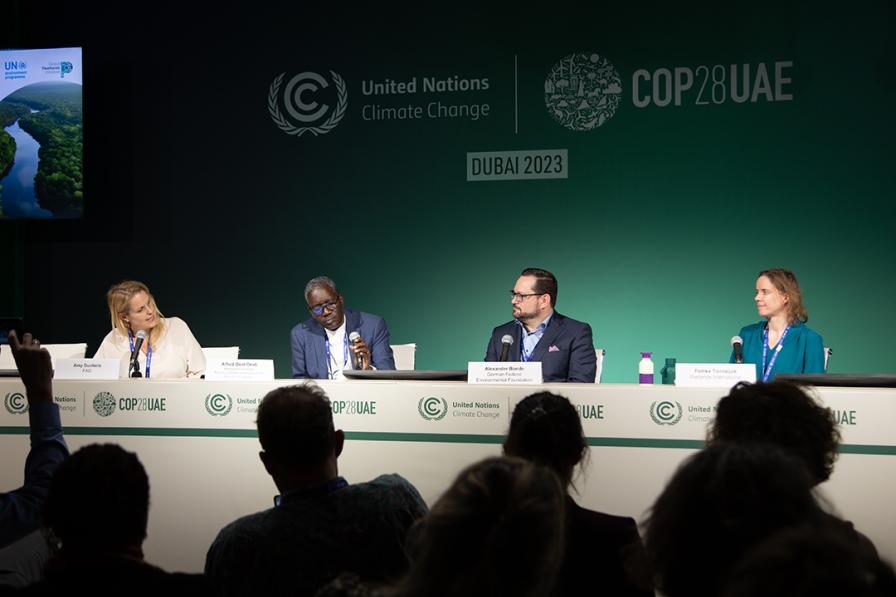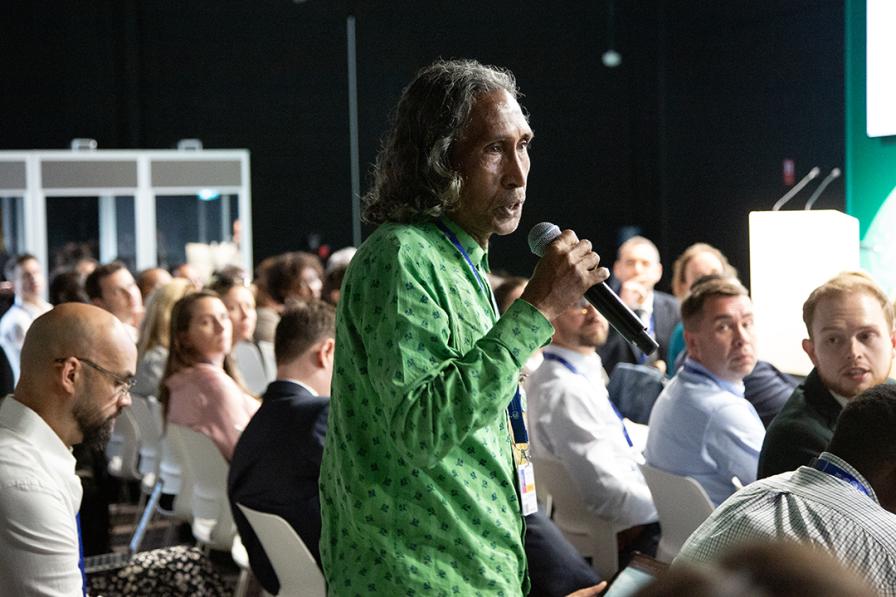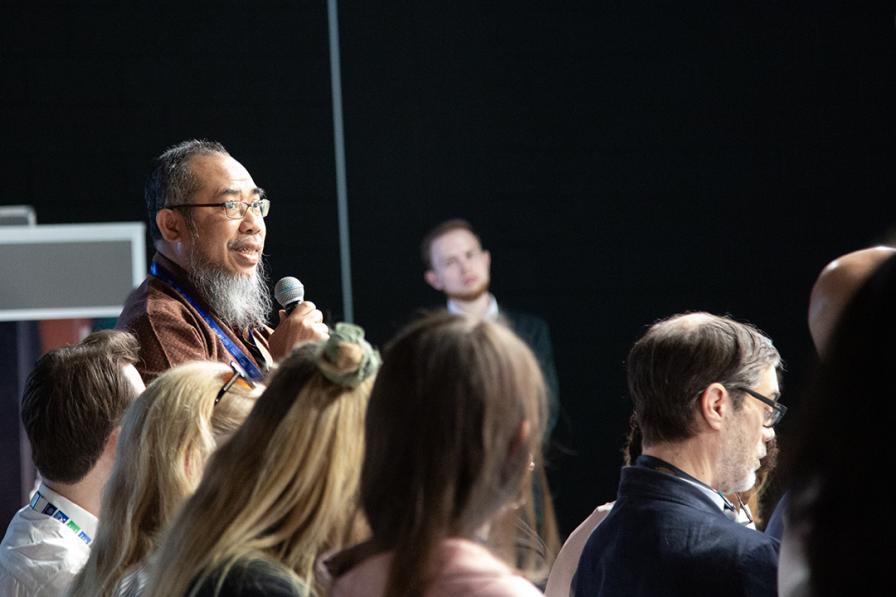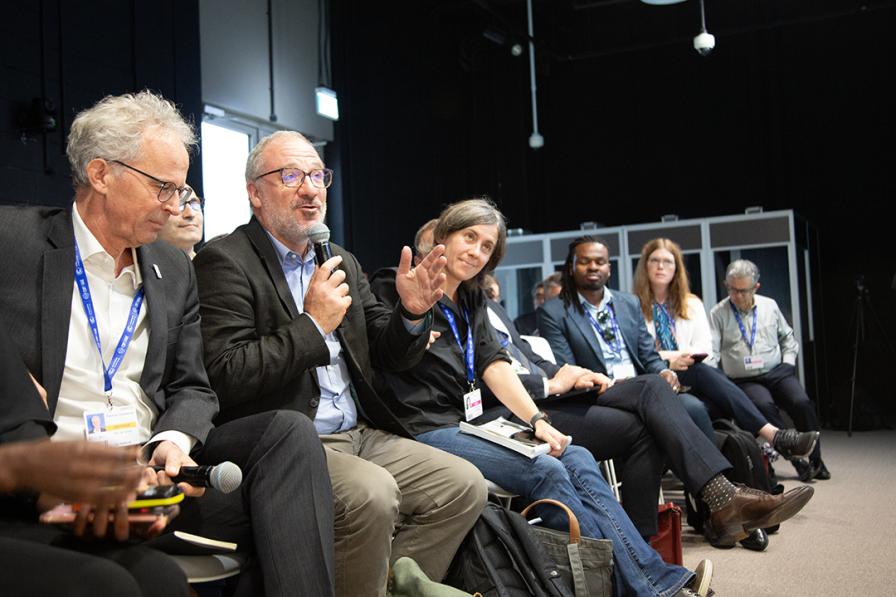About
Protection and restoration of peatlands are critical actions if the world is to meet climate targets under the Paris Agreement. This event highlighted policies, funding, and best practices for keeping these carbon sinks in the climate fight.
Nature-based solutions are integral components of a greener future and, among these solutions, peatland conservation, restoration, and sustainable management are critical if we are to put the climate goals of the Paris Agreement back on track. This event focused on highlighting the state-of-the-art science, policy, financing, and practices that are implemented and needed for upscaling, to unleash the climate, water, and biodiversity benefits of peatlands.
Han de Groot, CEO, Wetlands International, opened the event noting that peatlands once were a “boring” topic, but have now become “exciting” and increasingly a topic for discussion at COP 28. In the first panel, which he moderated, Bruno Pozzi, UN Environment Programme (UNEP), and Franziska Tanneberger, Greifswald Mire Centre, stressed the urgency of protecting and restoring peatlands, which store in their soils twice as much carbon as the world’s forests’ biomass, contributing about 4% of total anthropogenic greenhouse gas emissions when drained and degraded.
Pozzi underscored that achieving the world’s climate goals requires keeping carbon locked away in healthy peatlands and restoring and rewetting these special areas, which have been drained and degraded. He emphasized the need for global scale action, noting the impact and results of the Global Peatlands Initiative since its launch in 2016, with 55 members working together globally and directly supporting four major tropical peatland countries.
Tanneberger highlighted the latest science findings gathered in the Global Peatlands Assessment (GPA) launched last year at COP 27, which shows that the 500 million hectares of peatland globally (3-4% of the planet’s land surface) store about 600 megatons of carbon, but also that about 12% of global peatlands have been degraded and are losing peat. She noted that the carbon stored by peatlands “can be released or stay there, secured. It’s up to us as people what happens in the future.” Tanneberger underscored the GPA recommendations, which include: conserving all natural peatlands and rewetting all degraded peatlands; developing improved data systems; forming fair and transparent governance systems; and scaling up support for action on the ground by blending public and private financing to protect and restore global peatlands at scale and with speed.
In response to audience questions and comments, Tanneberger noted the possibility of underreporting by countries on the status of peatlands. Pozzi urged the peatland community of practice to become more active in communicating the message outside of the sectors and disciplines they work in on the urgent need to protect and restore peatlands, and to transfer this latest science to inform decisions.
A second panel moderated by Amy Duchelle, Food and Agriculture Organization of the United Nations (FAO), focused on country and sub-national initiatives to protect and improve the management of peatlands. Alfred Okot Okidi, Ministry of Water and Environment, Uganda, shared that knowledge about peatlands in Uganda is still very young but that peatlands have been integrated into Uganda’s Nationally Determined Contributions with respect to emission reductions and adaptation. Okidi noted efforts to raise awareness and effectively engage with communities so that they have the means to value peatlands, which are not seen or felt in the same way yet as other wetlands and forests. Academia and development partners, he explained, also provide crucial information for advancing with integrated management of peatland landscapes for water, carbon storage, and communities’ livelihoods.
Alexander Bonde, Secretary General, German Federal Environmental Foundation, highlighted the role of civil society to support projects, improve stakeholder dialogue, and innovate technologies to improve peatland restoration. He stressed the importance of establishing value chains for paludiculture, which involves the production of biomass in wet, and particularly rewetted peatlands, processing the biomass, and bringing high-value products to the markets. Thus, he explained, paludiculture preserves peat carbon stores and delivers financial rewards to farmers and other land managers in rural peatland areas under high land-use pressure.
Femke Tonneijck, Wetlands International, emphasized the need for easily accessible scientific and local knowledge, buy-in from governments and communities, and short and long-term financing for peatland conservation and restoration for work to get underway. With commitments made at COP 28 to global initiatives such as the Mangrove Breakthrough and the Freshwater Challenge, she also called for the urgent creation of a global Peatland Push to secure the future of peatlands, unlock finance, and galvanize collective action.
The event concluded with a discussion on the need for rapid action to improve peatland management while peatland maps and guidance are advanced. Indonesian, Argentinian, Russian, Canadian, and Bangladeshi stakeholders shared their experiences, discussing means to ensure local livelihoods and inclusion of peatlands into national climate commitments. Speakers from the Ramsar Convention on Wetlands and others emphasized the need for developing further capacity in all countries to ensure more people have the skills and knowledge to work on peatlands.
Organizers: Michael Succow Foundation, Greifswald Mire Centre, Deutsche Bundesstiftung Umwelt (DBU), and Wetlands International with the support of the Global Peatlands Initiative, UNEP, and FAO.
Contact: Tabitha Muriuki, Tabitha.Muriuki@wetlands.org I Jan Peters, jan.peters@succow-stiftung.de
For more information: https://globalpeatlands.org/; https://www.wetlands.org/; www.greifswaldmoor.de
To receive free coverage of global environmental events delivered to your inbox, subscribe to the ENB Update newsletter.
All ENB photos are free to use with attribution. For this COP 28 side event, please use: Photo by IISD/ENB | Angeles Estrada Vigil
